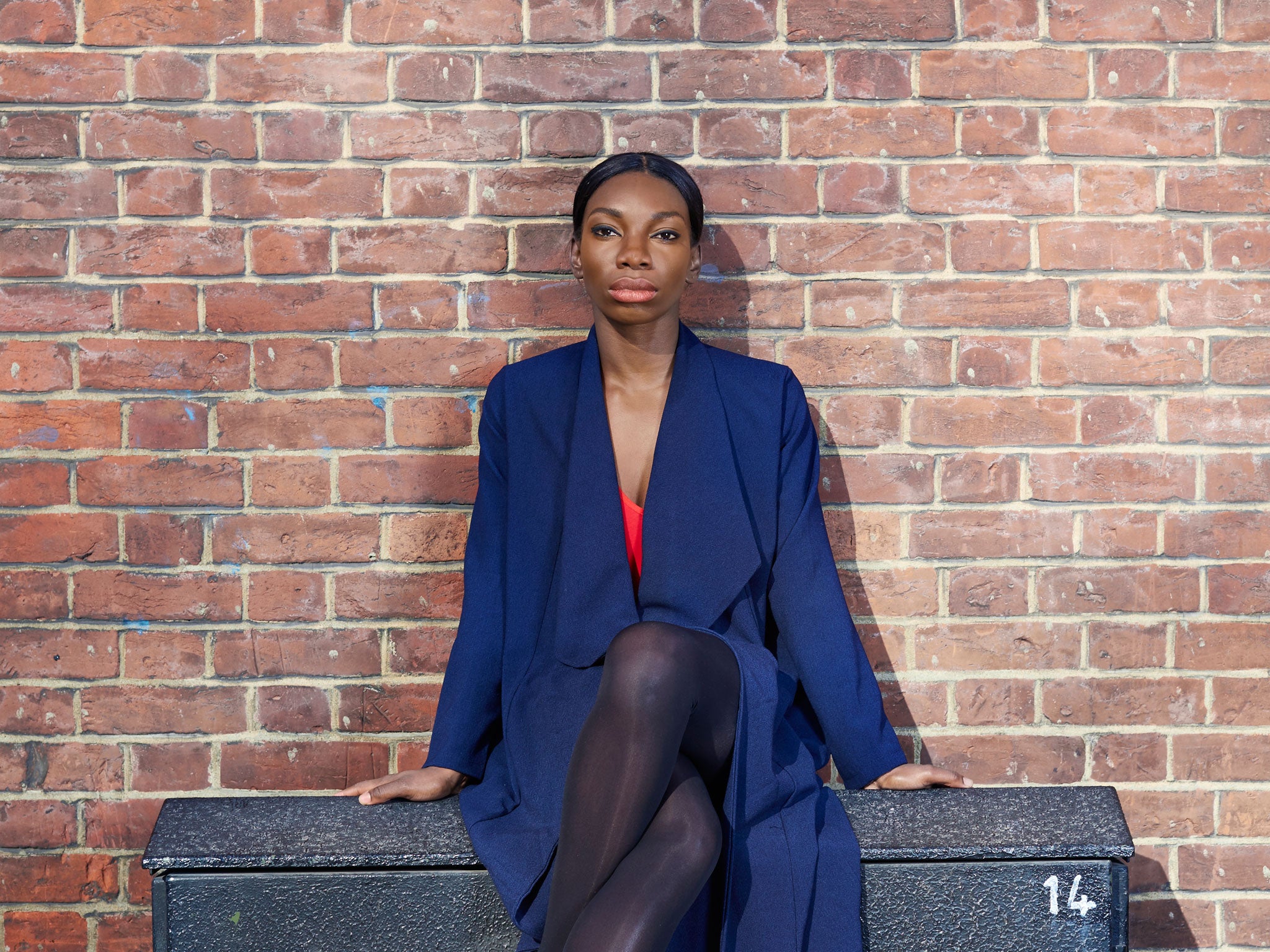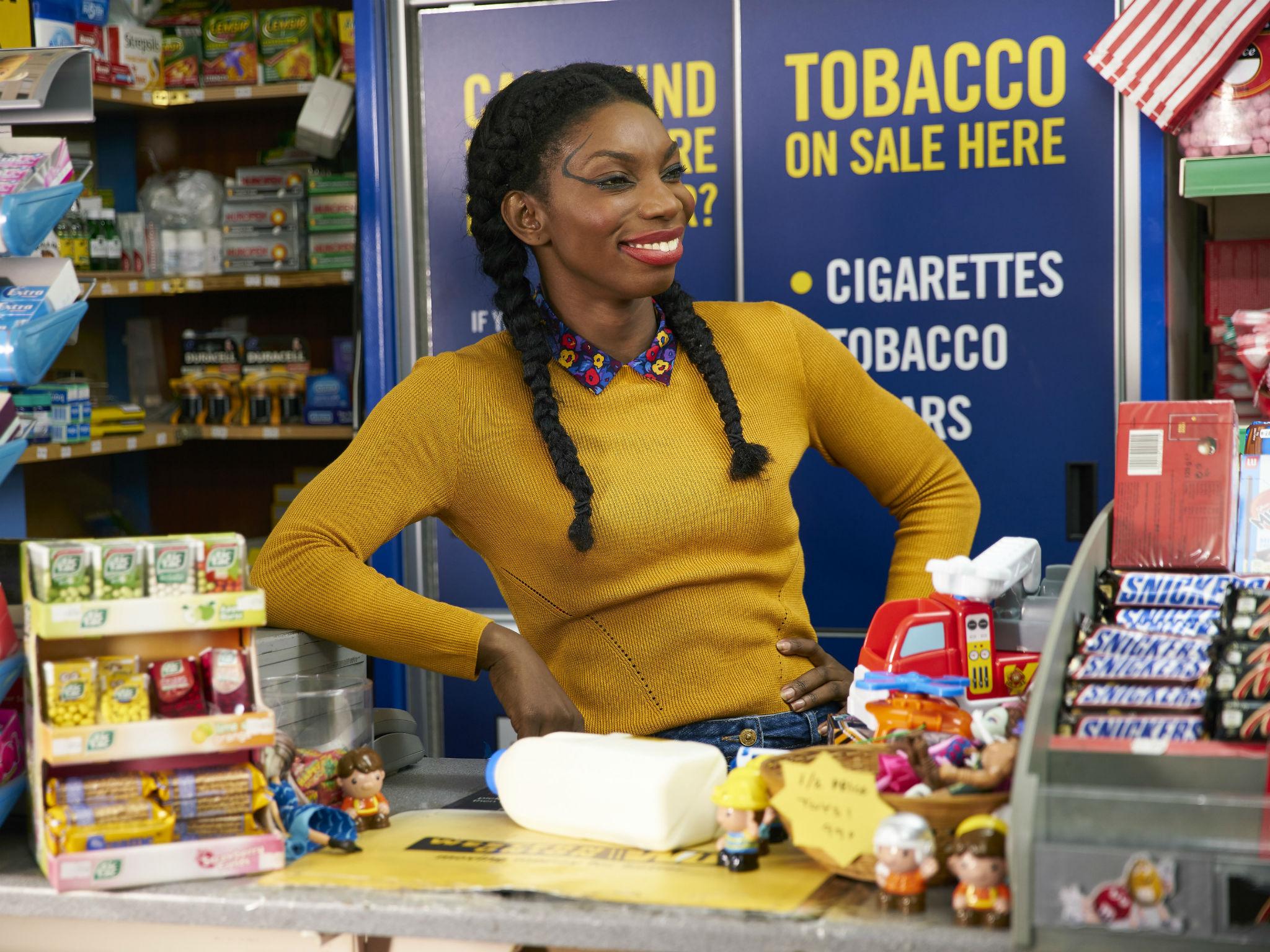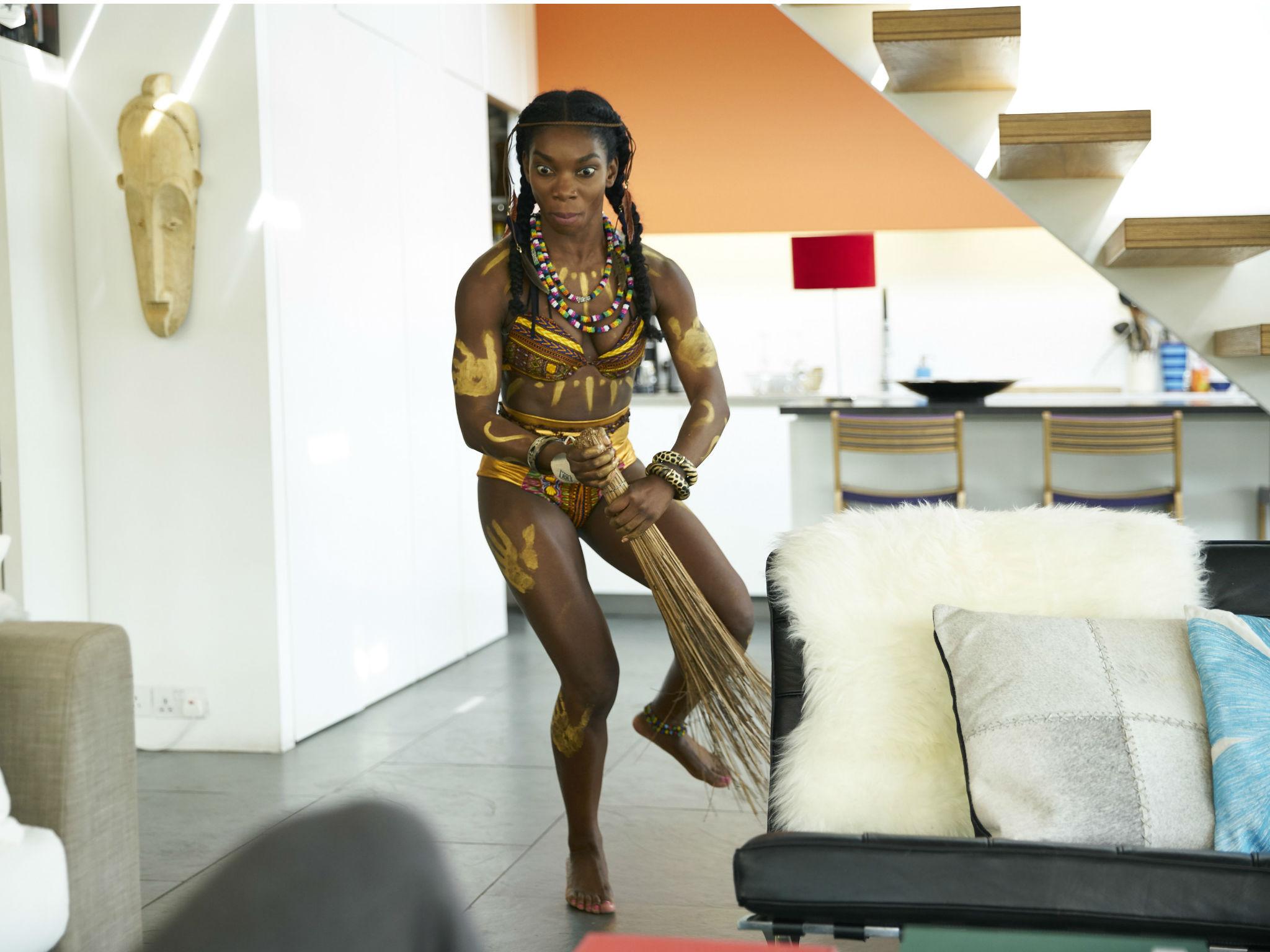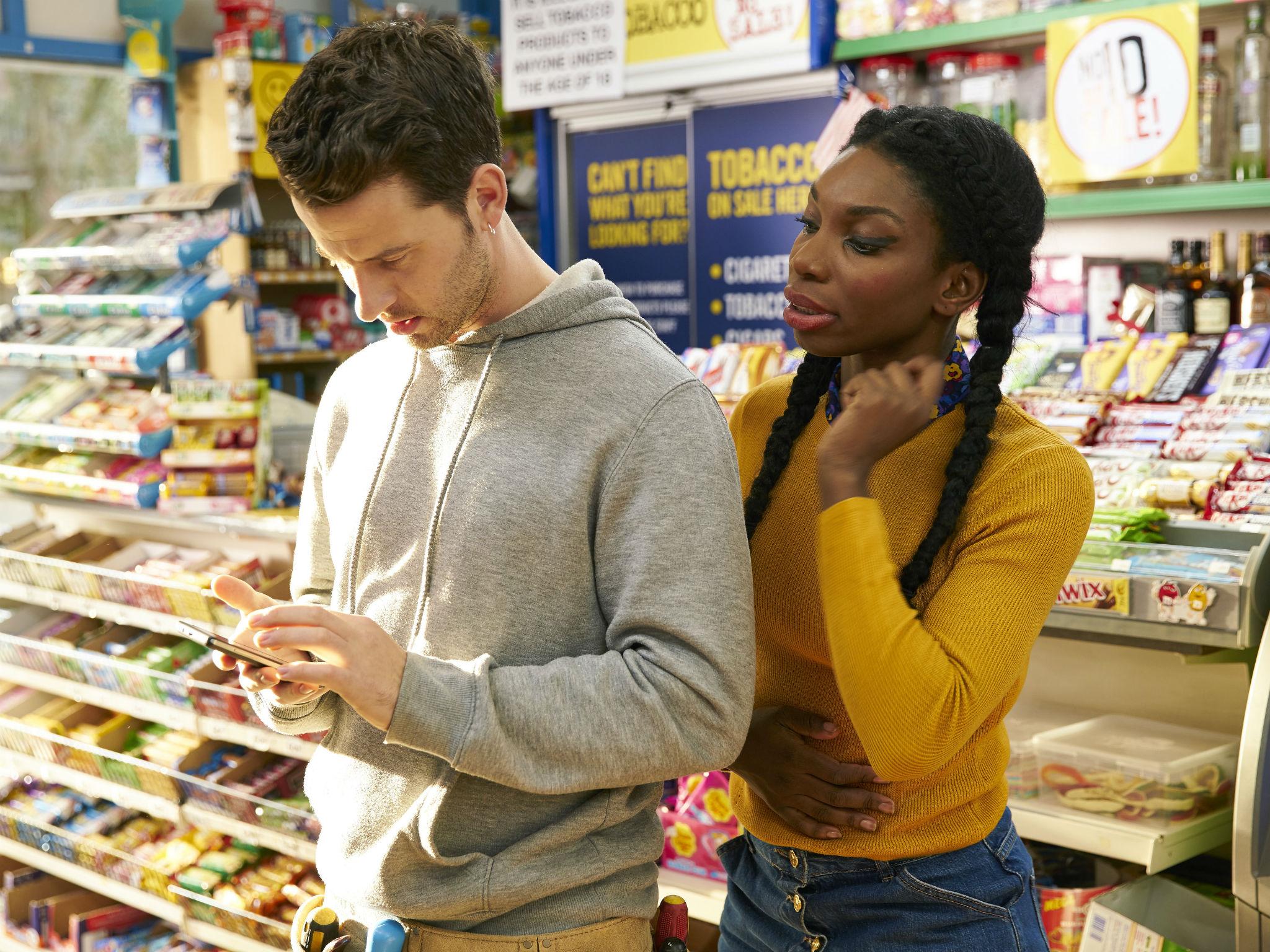Chewing Gum's Michaela Coel interview: 'My mum used to shave my pubes'
Can the second series of Michaela Coel’s Bafta-winning comedy ‘Chewing Gum’, about a Beyoncé-crazy 24-year-old virgin, retain its zest and rude health?

Your support helps us to tell the story
From reproductive rights to climate change to Big Tech, The Independent is on the ground when the story is developing. Whether it's investigating the financials of Elon Musk's pro-Trump PAC or producing our latest documentary, 'The A Word', which shines a light on the American women fighting for reproductive rights, we know how important it is to parse out the facts from the messaging.
At such a critical moment in US history, we need reporters on the ground. Your donation allows us to keep sending journalists to speak to both sides of the story.
The Independent is trusted by Americans across the entire political spectrum. And unlike many other quality news outlets, we choose not to lock Americans out of our reporting and analysis with paywalls. We believe quality journalism should be available to everyone, paid for by those who can afford it.
Your support makes all the difference.It's midday at the Andover Estate in north London, the Holloway housing complex that Ann Widdecombe once braved for an ITV documentary, Ann Widdecombe v the Hoodies, that branded the estate a “dump” terrorised by gangs of out-of-control youngsters. Andover’s youth were so incensed that they clubbed together to create their own YouTube video, Beyond the Hoodie, telling their side of the story.
There’s no sense of confrontation today – far from it – as the cameras turn on the estate's main precinct, for this is the second series of Michaela Coel's award-winning E4 (and, worldwide, on Netflix) comedy Chewing Gum, which is far removed from Widdecombe's prejudices about estate life as it's possible to get.
The show is the joyously rude saga of a Beyoncé-crazy 24-year-old virgin, Tracey Gordon, played by Coel, and her frustrated attempts to have penetrative sex – in the first series with a closet-gay Christian boyfriend – virtually all other forms of intercourse having been exhausted. Coel, who is herself 29, based the sitcom on her less comedic autobiographical monologue that played at the National Theatre, in which the central character was 14. She was raised on just such an estate further east, in Tower Hamlets, was determined to show the setting in a positive light. “There's enough of the portrayal of the scary kind,” she says. “The whole idea that you have to be careful when you go there. I go to estates I don’t live on all the time.”

A smattering of locals are hanging around today to watch the shoot, as Tracey, along with her sister Cynthia (Susan Wokoma) and mother Joy (Shola Adewusi) are handing out religious leaflets – the homeless Tracey pretending to have rediscovered her Christian faith so that she can move back into her mum's flat. A man on a bike rides by, shouting “Chewing Gum... Chewing Gum... Can't wait for the next episode”, but mostly people are fairly indifferent.
“Overall there's no big fuss,” agrees Coel during a break for lunch. “I was thinking like ‘I'm going to need security... I'm going to need sunglasses’... but no, nobody cares. It makes it easy for us. It's quick, it's normal.”
If she was expecting a fuss for the second series, it's because of the extraordinary success of the first one. Not only did Coel win a Royal Television Society Award for Breakthrough Artist (“a break through in every direction,” reads the citation), but she also won two Baftas – one for Best Female Comedy Performance (beating fellow nominees Miranda Hart and Sharon Horgan in the process), the other for writing the show. Unlike with so many winners, who appear to be faking their surprise when called to the stage, Coel looked genuinely dumbfounded when Idris Elba read out her name.
“All I remember is the camera is on my face, like I really don't like that thing that they do when they put it on your face”, says Coel, who hadn't prepared a speech. “I thought I'm not going to win so I'm deliberately not thinking of anything to say, because if it doesn't work out you go home and cry, and all you've got left in your hand is the speech you didn't read.”

In the event, her acceptance address proved short and sweet – paying her respects to Victoria Wood, who had recently died, adding: “If there's anyone out there who looks like me or feels out of place trying to get into performing and all this kind of stuff, say 'You are beautiful – embrace it; you are intelligent – embrace it; you are powerful – embrace it.”
Coel herself first learned to embrace her power and beauty when, aged 17, she found religion. “Within a week or two I had written my first poem”, she says. “I'd started reading the Bible, and it's quite poetic. There's psalms that tell you things that nobody tells you – that you're fearfully and wonderfully made, that you're beautiful, that you have worth, basically.”
Coel's Ghanaian parents split up before she was born, and she and her older sister were brought up by her mother, a former cleaner who took a degree and a masters in psychology and now works for the NHS. With one older sister, it was all female household, where she felt free to walk around naked and, she adds, “my mum used to shave my pubes”.
She's no longer a believer, but in her five-year “militant” phase, Coel managed to convert her mother and sister, as well as a former boyfriend who is now a pastor. Part of the reason for her loss of faith was not being able to square the church's hostility to homosexuality with her love for her new gay friends at drama school, and it's perhaps significant that she has beefed up the character of Ola – the all-singing, all-dancing camp Nigerian “diva” played by Olisa Odele – for the second series.

Having recorded “tiny” roles in Netflix's Black Mirror and the new Star Wars movie (“One line but I loved it because it's Star Wars, and John Boyega’s bloody lovely”), Coel took herself off to Cornwall and Berlin – away from “all the noise” of her everyday life in Tower Hamlets – to write the second series, acutely aware that she had a lot to live up to. “It did so well last year that you could go, ‘oh god, I've got to make sure I’m nominated for the Baftas and the RTS's again’,” she says. “That's not healthy, it's not a good way to write a story. You just have to write a story – irrelevant of anything or anyone.”
Evidence of Chewing Gum's higher profile can be witnessed at the end of the first new episode, but having watched the opening two episodes, I can vouch the show remains in rude health, starting with a virtual two-hander between Tracey, still ensconced behind the counter of Deepak's Delectables convenience store, and estranged boyfriend Connor (Robert Lonsdale) – that features flashbacks to the moment that Connor dumped her: a scene in the disabled toilet of a homeless hostel that involves a drunken Tracey, some lurid orange vomit and attempted sex in the shower.
Coel finds herself apologising for inflicting such scenes on her co-stars. “I could do it because I wrote it”, she says. “But for them it's ‘oh, I'm so sorry, it's going to be fine’. I respect them for being up for it, I really do.”
'Chewing Gum' returns to E4 at 10pm on 12 January
Join our commenting forum
Join thought-provoking conversations, follow other Independent readers and see their replies
0Comments